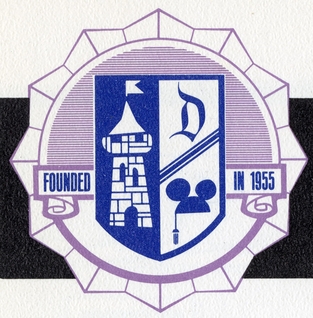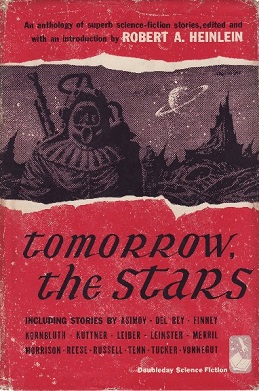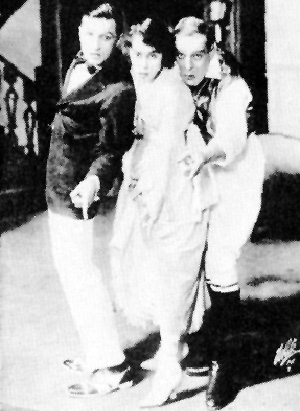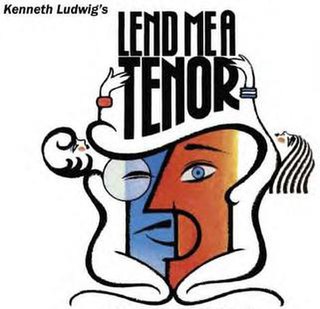Related Research Articles

Kurt Vonnegut was an American writer and humorist known for his satirical and darkly humorous novels. He published 14 novels, three short-story collections, five plays, and five nonfiction works over fifty-plus years; further collections have been published since his death.

Soylent Green is a 1973 American ecological dystopian thriller film directed by Richard Fleischer, and starring Charlton Heston, Leigh Taylor-Young, and Edward G. Robinson in his final film role. It is loosely based on the 1966 science-fiction novel Make Room! Make Room! by Harry Harrison, with a plot that combines elements of science fiction and a police procedural. The story follows a murder investigation in a dystopian future of dying oceans and year-round humidity caused by the greenhouse effect, with the resulting pollution, depleted resources, poverty, and overpopulation. In 1973, it won the Nebula Award for Best Dramatic Presentation and the Saturn Award for Best Science Fiction Film.

Cat's Cradle is a satirical postmodern novel, with science fiction elements, by American writer Kurt Vonnegut. Vonnegut's fourth novel, it was first published on March 18, 1963, exploring and satirizing issues of science, technology, the purpose of religion, and the arms race, often through the use of morbid humor.
"Elegy" is the twentieth episode of the American television anthology series The Twilight Zone. It originally aired on February 19, 1960, on CBS. The episode was based on a short story by Charles Beaumont published in the February 1953 issue of Imagination: Stories of Science and Fantasy.

Slaughterhouse-Five, or, The Children's Crusade: A Duty-Dance with Death is a 1969 semi-autobiographic science fiction-infused anti-war novel by Kurt Vonnegut. It follows the life experiences of Billy Pilgrim, from his early years, to his time as an American soldier and chaplain's assistant during World War II, to the post-war years. Throughout the novel, Billy frequently travels back and forth through time. The protagonist deals with a temporal crisis as a result of his post-war psychological trauma. The text centers on Billy's capture by the German Army and his survival of the Allied firebombing of Dresden as a prisoner of war, an experience that Vonnegut endured as an American serviceman. The work has been called an example of "unmatched moral clarity" and "one of the most enduring anti-war novels of all time".

Breakfast of Champions, or Goodbye Blue Monday is a 1973 novel by the American author Kurt Vonnegut. His seventh novel, it is set predominantly in the fictional town of Midland City, Ohio, and focuses on two characters: Dwayne Hoover, a Midland resident, Pontiac dealer and affluent figure in the city, and Kilgore Trout, a widely published but mostly unknown science fiction author. Breakfast of Champions deals with themes of free will, suicide, and race relations, among others. The novel is full of drawings by the author, substituting descriptive language with depictions requiring no translation.
Kilgore Trout is a fictional character created by author Kurt Vonnegut. Trout is a notably unsuccessful author of paperback science fiction novels.

Make Room! Make Room! is a 1966 science fiction novel written by Harry Harrison exploring the consequences of both unchecked population growth on society and the hoarding of resources by a wealthy minority. It was originally serialized in Impulse magazine.

Disney University (DU), formerly known as University of Disneyland, is the global training program for employees of the parks and experiences divisions at The Walt Disney Company also known as Cast Members. Many college students can participate through the Disney college program. The Disney college program is a full-time paid internship at Walt Disney World in Orlando, Florida. Students can receive academic credit while building their resume.
"Tomorrow and tomorrow and tomorrow" is the beginning of the second sentence of one of the most famous soliloquies in William Shakespeare's tragedy Macbeth. It takes place in the beginning of the fifth scene of Act 5, during the time when the Scottish troops, led by Malcolm and Macduff, are approaching Macbeth's castle to besiege it. Macbeth, the play's protagonist, is confident that he can withstand any siege from Malcolm's forces. He hears the cry of a woman and reflects that there was a time when his hair would have stood on end if he had heard such a cry, but he is now so full of horrors and slaughterous thoughts that it can no longer startle him.

Mother Night is a 1996 American romantic war drama film produced and directed by Keith Gordon. It is based on Kurt Vonnegut's 1961 novel of the same name.
The Library of America (LOA) is a nonprofit publisher of classic American literature. Founded in 1979 with seed money from the National Endowment for the Humanities and the Ford Foundation, the LOA has published more than 300 volumes by authors ranging from Nathaniel Hawthorne to Saul Bellow, Frederick Douglass to Ursula K. Le Guin, including selected writing of several U.S. presidents. Anthologies and works containing historical documents, criticism, and journalism are also published. Library of America volumes seek to print authoritative versions of works; include extensive notes, chronologies, and other back matter; and are known for their distinctive physical appearance and characteristics.

"The U.S. Air Force" is the official song of the United States Air Force, adopted in the late 1940s, and is often referred to as "Wild Blue Yonder".

Tomorrow, the Stars is an anthology of speculative fiction short stories, presented as edited by American author Robert A. Heinlein and published in 1952.

Oh, Boy! is a musical in two acts, with music by Jerome Kern and book and lyrics by Guy Bolton and P. G. Wodehouse. The story concerns befuddled George, who elopes with Lou Ellen, the daughter of Judge Carter. He must win over her parents and his Quaker aunt. His dapper polo champion friend Jim is in love with madcap actress Jackie, but George must hide her while she extricates herself from a scrape with a bumbling constable whom she punched at a party raid.
"Welcome to the Monkey House" is a Kurt Vonnegut short story that is part of the collection of the same name. It is alluded to in God Bless You, Mr. Rosewater as one of Kilgore Trout's stories.

Lend Me a Tenor is a comedy by Ken Ludwig. The play was produced on both the West End (1986) and Broadway (1989). It received nine Tony Award nominations and won for Best Actor and Best Director. A Broadway revival opened in 2010. Lend Me a Tenor has been translated into sixteen languages and produced in twenty-five countries. The title is a pun on "Lend me a tenner".

The Vonnegut Hardware Company was an Indianapolis hardware store that operated from 1852 to 1965. It was founded by Clemens Vonnegut, Sr., a German former textile ribbon salesman from Amsterdam, who arrived in Indianapolis around 1851.
"Both Sides Now" is the twenty-fourth episode and season finale of the fifth season of House. It originally aired on Fox on May 11, 2009.

Any God Will Do is the sixth book by the American satirist and political novelist Richard Condon, first published by Random House in 1966. After the almost unmitigated grimness of his previous book, An Infinity of Mirrors, it was a return to his more usual light-heartedness as displayed in works such A Talent for Loving. Although its theme is madness, unusually for Condon it has little of the almost gratuitous scenes of violence and sudden deaths that punctuate most of his books. The only notable instance is that of a haughty French sommelier who shoots himself at an aristocratic dinner party when he discovers that an American guest is indeed correct in asserting a great white Burgundy can accompany young spring lamb.
References
- ↑ Marc, Leeds; Reed, Peter. "Kurt Vonnegut: Images and Representations". Greenwood Publishing Group. Retrieved 18 December 2010.
- ↑ Sidney Offit, ed. Kurt Vonnegut: Novels & Stories 1950-1962, The Library of America (2012), pp. 822, 833. ISBN 978-1-59853-150-3
- ↑ Sidney Offit, ed. Kurt Vonnegut: Novels & Stories 1950-1962, The Library of America (2012), pp. 748-762. ISBN 978-1-59853-150-3